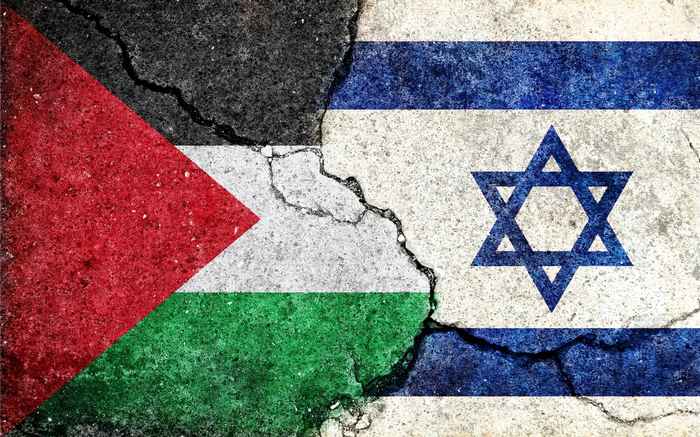Towards a new direction for the Netherlands in the Israeli-Palestinian conflict
Advisory Letter to the Dutch Government
4 November 2024

The Council recommends that The Netherlands adopts a ‘policy of enhanced diplomacy and pressure’, that it ‘urgently pushes for a ceasefire in Gaza, for de-escalation and humanitarian access’, and that it ‘makes every effort to promote a sustainable two-state solution.’
It makes four overarching policy recommendations:
- ‘Commit to more-effective policies at the national and EU levels: Actively seek out coalitions of like-minded partners wherever EU consensus fails to materialize […] and use the available positive and negative policy instruments at the EU and national levels more consistently and effectively, with respect for international law and human rights playing key benchmark roles.’
- ‘Help create a supportive regional context: Contribute to diplomatic initiatives aimed at a ceasefire both in Gaza and Lebanon, contain Iran’s negative influence in the region and, in parallel, seek an opening for a renewed ‘nuclear’ dialogue wherever possible […].’
- ‘Comply consistently with international law and the obligations arising from it: In addition, encourage other states and non-governmental entities to do the same […]’.
- ‘Take steps to revitalise the process towards a genuine two-state solution […]’.
’With the escalation of the Israeli-Palestinian conflict in the Gaza Strip and the international response to it, new lows have been reached this past year in humanitarian, political, and moral terms, and in terms of international lawAIV Advisory Letter
In addition to these four overarching policy principles, the Council comes with five more specific recommendations. Professor Nijman has discussed the third recommendation, which deals with international law more extensively, during the aforementioned press conference and on her LinkedIn page. The full advisory letter from the AIV can be downloaded here in Dutch and English.
As professor Nijman has pointed out: “in addition to [the] overarching recommendation [see supra c.] the council has also included a specific recommendation on this matter. This concerns the third recommendation regarding the obligations that also arise for the Netherlands from international law; as also established by the International Court of Justice in the recent Advisory Opinion (19 July 2024).
This recommendation by the AIV contains the following three elements:
(i) The Netherlands has the obligation, as a ‘third state’, not to contribute in any way to the continuation of the ‘situation’ that has been judged by the Court as ‘unlawful’. This means: ‘the prolonged occupation’ of the OPT – which the Court qualifies as illegal’ –, the settlement policy and the violations of international humanitarian law and of human rights that come with it, and Israel’s failure to respect the Palestinian right to self-determination.
As a ‘third state’, the Netherlands must recognise this obligation, which means that the Netherlands must use all possible means to end or prevent these violations by the parties to the conflict and must work on accountability mechanisms for these violations.
(ii) The Netherlands must avoid applying double standards with regard to compliance with international law and human rights. Such double standards undermine the legitimacy and the impact of international law, and also the position of Europe and the Netherlands in the world. The Netherlands must focus on corrective policy measures and adjust its voting behaviour in the UN accordingly. In the advice, this is also called ‘consistent compliance with international law’.
(iii) The third element of the recommendation is that the Netherlands continues to realise that it has a special position and responsibility when it comes to complying with international law and promoting compliance by others. This position is based on a) its role as host country of the International Court of Justice and the International Criminal Court - so: respect the rulings, comply with them and promote compliance with them; and b) on the provision in the Dutch Constitution (Article 90) which states that the government must promote the international legal order. In this case, this requires a ‘more active role’ from the Netherlands.
Respect for the international law of parties and third states is crucial to achieving a two- state solution and sustainable peace.
The recalibration of Dutch policy proposed by the AIV aims to fulfil the role of 'critical friend of both Israel and the Palestinians' more effectively and credibly.AIV Advisory Letter
The Advisory Letter also focuses on a concrete approach to achieving these objectives and in addition to the overarching policy principles and this specific recommendation, presents another five detailed recommendations in the advice. Among these is also the recommendation to ‘Proceed with recognition of the Palestinian state as soon as possible, preferably in an initiative with other countries; [to] highlight in this connection the importance of such recognition for sustaining the two-state solution; [to] not make such recognition conditional on a peace deal, but set conditions, namely a newly elected and broadly supported Palestinian leadership, disarmament of Hamas, and recognition of the state of Israel.’
Please note that these policy recommendations, which are especially international law-focussed, have to be read in the context of the AIV advice as a whole.